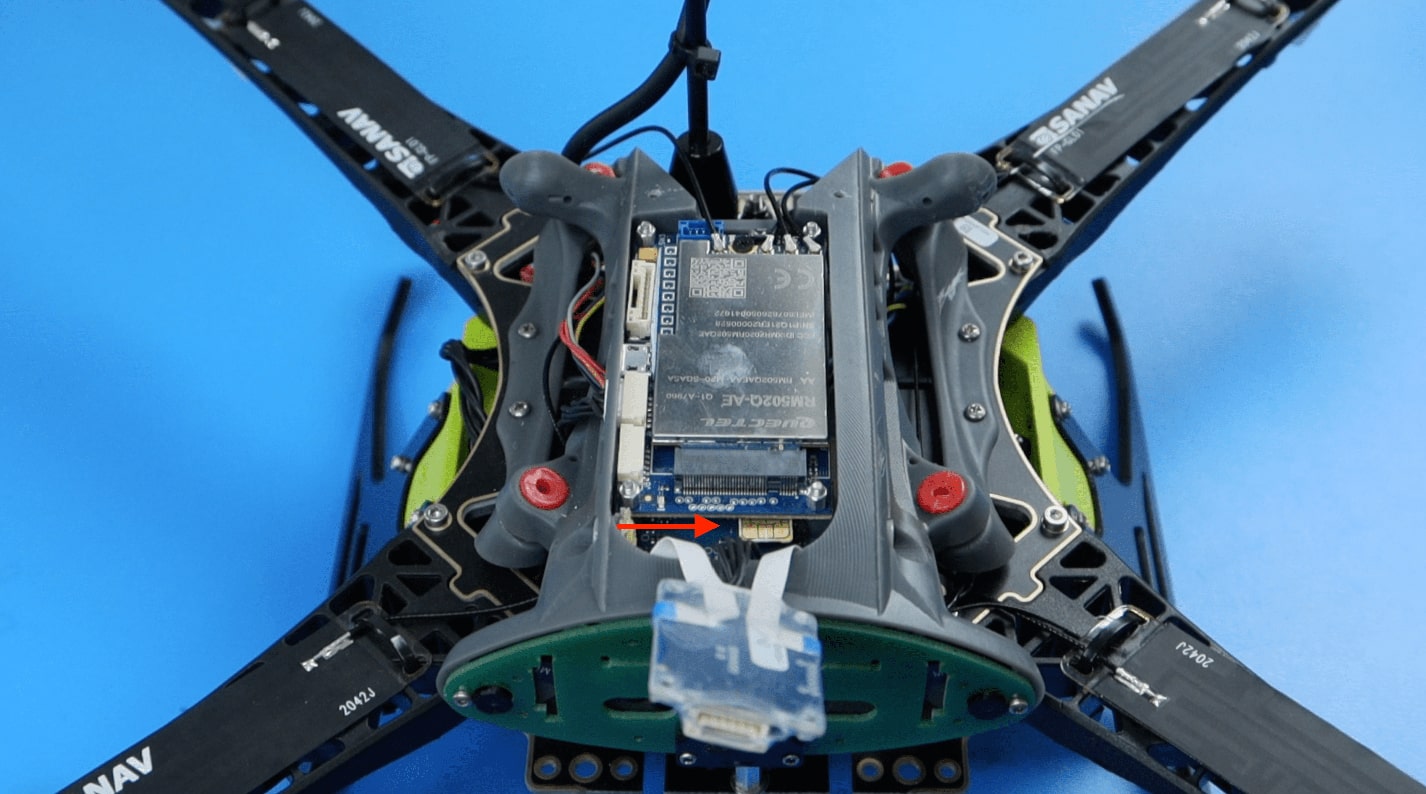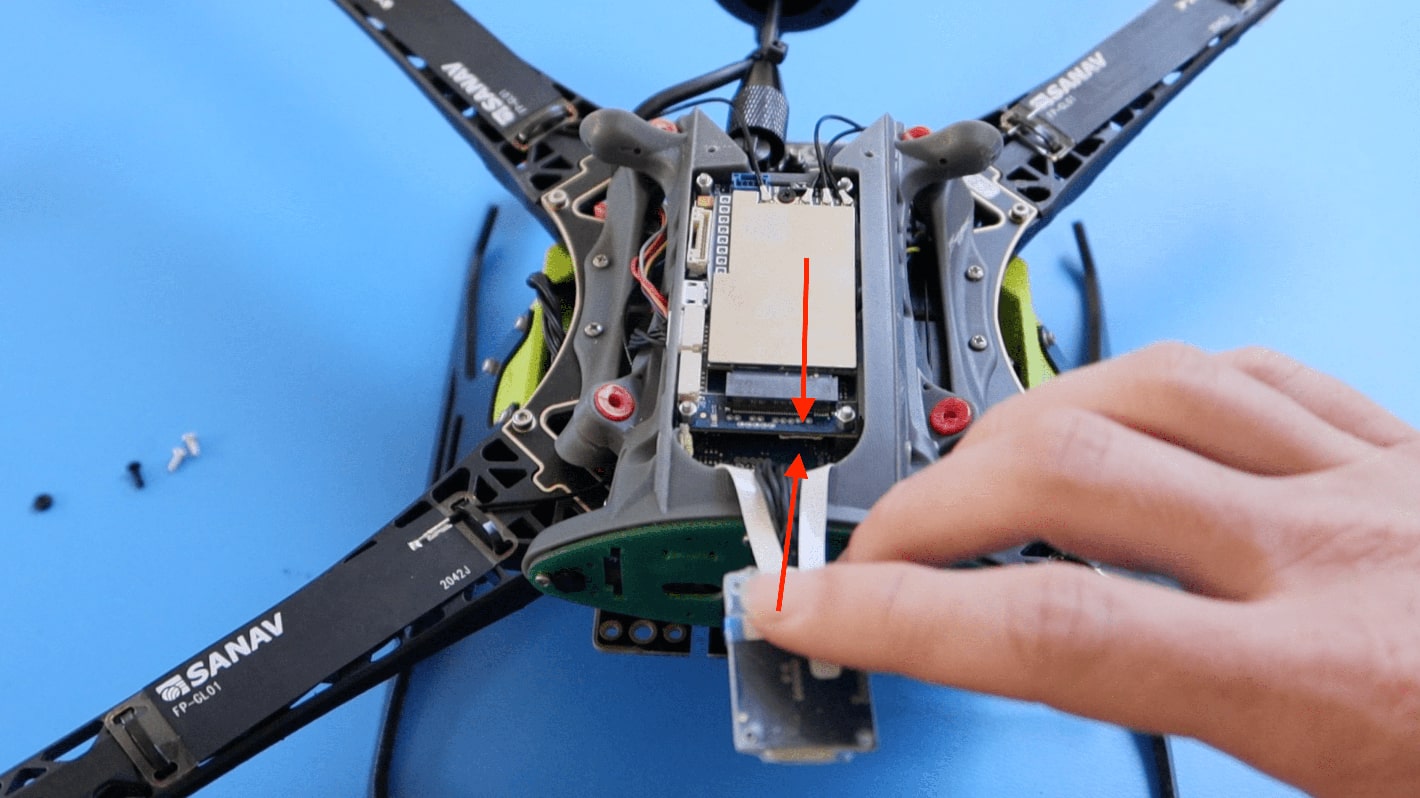Sentinel Connect Network
Table of contents
Connect Using WiFi
Related Video
The following video shows how to connect using a development kit:
voxl-wifi
First, ADB onto your device if you haven’t already done so:
adb shell
In order to connect your Sentinel to a Wi-Fi access point, run the following:
voxl-wifi station [SSID] [PSK]
where SSID and psk are the credentials for your WiFi network.
In order to connect using SoftAP mode, run the following:
voxl-wifi softap [SSID]
Note: if you use SoftAP mode, you will need to reboot:
# exit from adb
exit
# reboot
adb reboot
Check IP Address
Get the Sentinel shell over adb again:
adb shell
Run the following to find the IP of the Sentinel:
ifconfig wlan0
You’ll see something like:
wlan0: flags=4163<UP,BROADCAST,RUNNING,MULTICAST> mtu 1500
inet 192.168.1.188 netmask 255.255.255.0 broadcast 192.168.1.255
inet6 fe80::7970:262b:29b8:37e9 prefixlen 64 scopeid 0x20<link>
ether 00:03:7f:12:33:6e txqueuelen 3000 (Ethernet)
RX packets 51 bytes 7204 (7.2 KB)
RX errors 0 dropped 0 overruns 0 frame 0
TX packets 18 bytes 1889 (1.8 KB)
TX errors 0 dropped 0 overruns 0 carrier 0 collisions 0
In this case, Sentinel’s IP address on the network is 192.168.1.188
SSH onto Sentinel
Now, from you host machine, we can SSH on target using the following instead of adb:
ssh root@192.168.1.188
The default SSH password is oelinux123
If the SSH connection is successful, you should see the following:
Welcome to Ubuntu 18.04.5 LTS (GNU/Linux 4.19.125-perf aarch64)
* Documentation: https://help.ubuntu.com
* Management: https://landscape.canonical.com
* Support: https://ubuntu.com/advantage
* Super-optimized for small spaces - read how we shrank the memory
footprint of MicroK8s to make it the smallest full K8s around.
https://ubuntu.com/blog/microk8s-memory-optimisation
This system has been minimized by removing packages and content that are
not required on a system that users do not log into.
To restore this content, you can run the 'unminimize' command.
The programs included with the Ubuntu system are free software;
the exact distribution terms for each program are described in the
individual files in /usr/share/doc/*/copyright.
Ubuntu comes with ABSOLUTELY NO WARRANTY, to the extent permitted by
applicable law.
If you are having issues SSHing into the system as root, check here.
Connecting to 5G network
Install SIM Card
To install a SIM into Sentinel, start by disconnecting the battery.

Then, remove the two screws holding in the flight deck lid.

Next, remove the 4 screws holding in the chirp sensor. You may need to hold the bolts in place from the inside while unscrewing from the outside.

The SIM slot is located under the top PCB as shown above. Slide the SIM into the slot until you hear the click. You might find this process easier using forceps.
 Make sure the SIM is fully inserted. If you ever want to swap the SIM, just push on it, and it will pop out.
Make sure the SIM is fully inserted. If you ever want to swap the SIM, just push on it, and it will pop out.
 Screw the chirp sensor back in place. Then, screw the flight deck lid back on the same way you took it off.
Screw the chirp sensor back in place. Then, screw the flight deck lid back on the same way you took it off.
Configuring Service
In order to establish a connection to the 5G network, voxl-modem is required. The voxl-modem service can be configured by running the following:
voxl-configure-modem
The user will be prompted to select their modem hardware and APN (Access Point Name) for their chosen SIM card.
This will enable the voxl-modem service in the background and it will be started at boot.
Disabling / enabling service
The voxl-modem service can be disabled by running the following:
systemctl disable voxl-modem
It can be re-enabled using:
systemctl enable voxl-modem
The status of the service can be viewed by running:
systemctl status -l voxl-modem
Next Steps
There are roughly three paths you could take:
- Check out PX4 and Fly
- For developers, check out our Developer and Build Guides
Next Step: Developer Guide Next Step: Build Guide
- Skip to Machine Vision features to mess around at your desktop